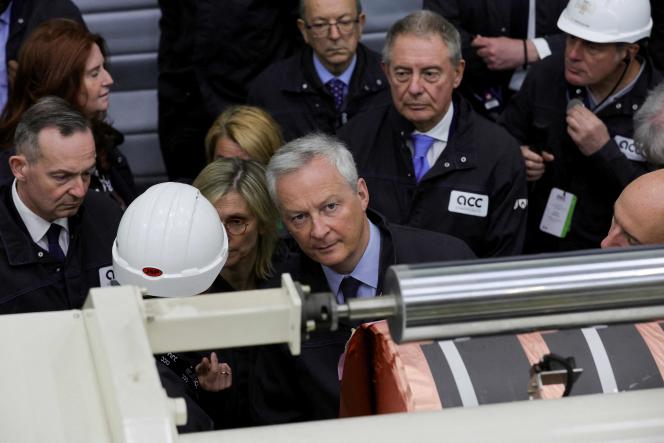The deadline panicked the political world much more than the markets for which it was nevertheless intended. Friday evening, June 2, the American agency Standard & Poor’s finally chose not to touch the rating of the French debt, maintained at the “AA” level. The pressure had been growing since its competitor Fitch had on the contrary decided, at the end of April, to downgrade it to “AA-“, worrying about the government’s ability to reform in a tense social context.
“The authorities have recently reviewed their medium-term fiscal consolidation strategy”writes Standard & Poor’s to justify the status quo, underlining the ” prosperity “ of the French economy and the “solidity” of its institutions. France tightened its objectives for the recovery of public finances in April, and now intends to reduce its deficit to 3.2% of GDP in 2026, a more ambitious objective than that presented to the agency at the end of 2022. the positive effects of the pension reform and the exit from the support measures linked to the energy crisis. Like Fitch, however, she sees the lack of a majority in Parliament as one of the “risks” weighing on the credibility of the objectives set, confirming the negative outlook weighing on the rating.
The government immediately saw in this the validation of its efforts of recent months. “It’s a positive sign. reacted the French Minister for the Economy, Bruno Le Maire, to the Sunday newspaper Friday night. Our public finance strategy is clear. She is ambitious. And she is believable. » As the deadline approached, the executive had multiplied the pledges of good management in recent weeks, announcing a few days ago the freezing of no less than 10 billion euros in credits allocated to the various ministries in 2023, and reducing by 5% those of 2024. Bruno Le Maire also highlighted as soon as he had the opportunity the resistance of the French economy compared to its German neighbor, the slowdown in inflation which is beginning and , of course, the pension reform adopted in the spring, supposed to bring in 8 billion euros by 2027.
Bruno Le Maire, “guarantor of this firmness”
Standard & Poor’s had fueled the fears of the executive with a first warning on December 2, 2022, when it had decided to match the rating of France with an outlook “negative” – a first step towards a more explicit sanction. She then mentioned the risk of a slowdown in the economy and the high budgetary cost of support policies in the energy crisis. The government, like the elected officials, had ended up resolving to the hypothesis of a sanction by the American agency, trying in advance to minimize its scope. Emmanuel Macron had even outright criticized the Fitch agency, believing in Opinion May 15 that she was wrong “deep in his political analysis”. “We have demonstrated that we know how to pass many laws with this majority”he added.
You have 51.3% of this article left to read. The following is for subscribers only.
